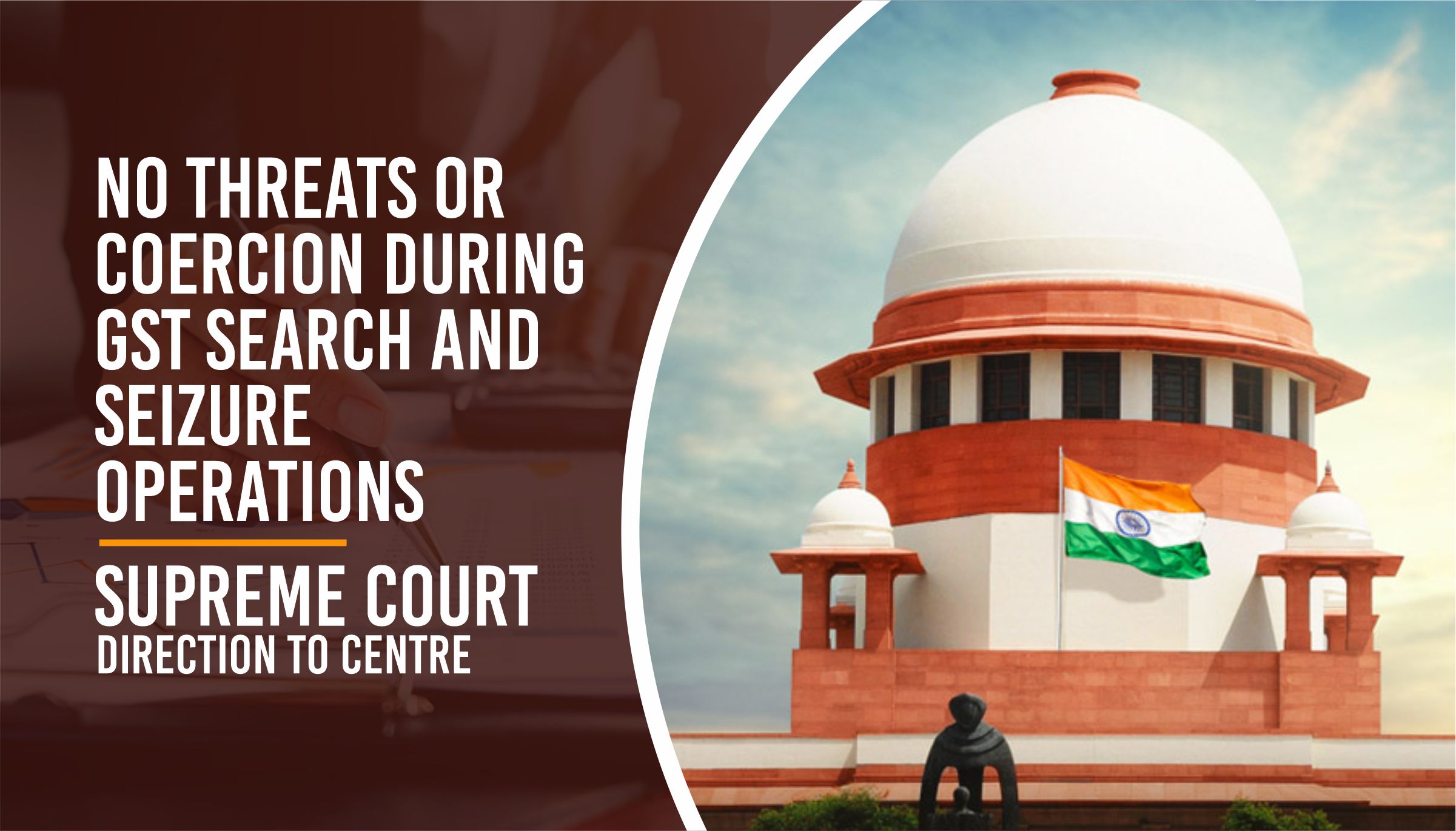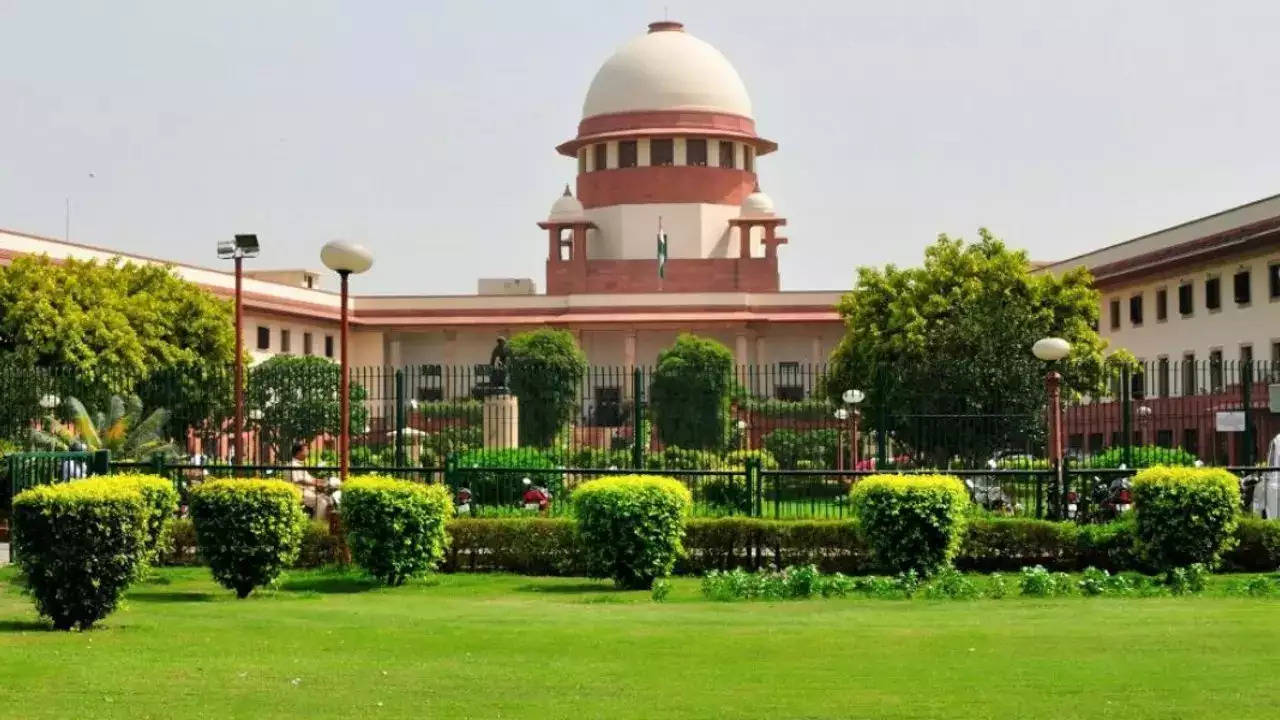SC: No Threats or Coercion During GST Search and Seizure Operations

In a recent hearing, the Supreme Court has directed the Centre to refrain from employing threats or coercion during search and seizure operations for recovering Goods and Services Tax (GST) dues. The bench comprising Justices Sanjiv Khanna, M M Sundresh, and Bela M Trivedi, while examining various provisions of the GST Act, emphasized the absence of any legal provision empowering authorities to use force for the payment of outstanding tax liabilities.
Lack of Legal Authority for Coercive Measures
The bench reiterated that the GST Act does not confer any authority upon the authorities to compel individuals to pay tax liabilities during search and seizure operations. Additional Solicitor General SV Raju, representing the Centre, was reminded by the bench that payments should be voluntary, with a reasonable time provided for alleged offenders to consult, deliberate, and clear their liabilities without any use of threat or coercion.
Raju acknowledged the possibility of past instances where force may have been used but emphasized that payments during such operations are predominantly voluntary. He noted that alleged offenders often seek time to consult their advocates before settling their liabilities, with instances of coercion being exceptions rather than the norm.
Upholding Safeguards and Legal Procedures
Responding to concerns raised by petitioners regarding threats and coercion by authorities, the bench emphasized the need for strict adherence to legal procedures. Senior advocate Sujit Ghosh, representing one of the petitioners, highlighted the failure to implement safeguards provided by the law, citing instances where individuals were subjected to the threat of arrest to compel payment.
The bench underscored the importance of checks and balances enshrined in the GST law, emphasizing the need for strict compliance with provisions such as section 69 (power to arrest) and section 70 (power to summon). It stressed that the legislative intent behind providing safeguard provisions must be upheld, urging authorities to apply due diligence and discretion while exercising powers of summoning or arrest.

Addressing Evading Tactics Without Coercion
During the hearing, instances of tax evasion through various means, such as transporting goods in unconventional vehicles like oil tankers and autorickshaws, were discussed. While acknowledging the challenges posed by such tactics, the bench reiterated that any enforcement actions must strictly adhere to legal procedures and should not involve coercion or threats.
The Supreme Court’s directive serves as a reaffirmation of the principles of fairness and legality in tax enforcement measures. By emphasizing voluntary compliance and adherence to due process, the court aims to strike a balance between revenue collection and protecting the rights of taxpayers, ensuring that enforcement actions are conducted within the bounds of the law.
